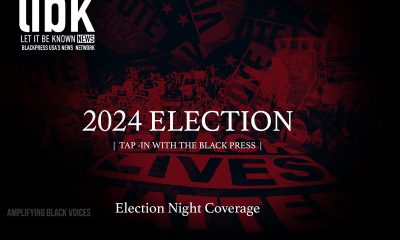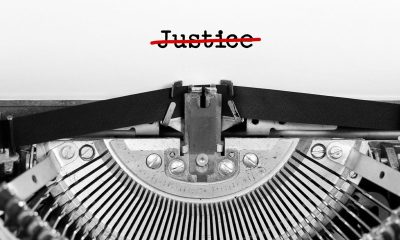#NNPA BlackPress
September is National Preparedness Month in Illinois
CHICAGO DEFENDER — National Preparedness Month is recognized each September as a way to promote family and community disaster and emergency planning. The Illinois Emergency Management Agency (IEMA), and local emergency managers, are encouraging Illinoisans to take time to prepare for potential emergencies at homes, at work, and in the community. Having a plan that includes where to go and how to communicate during disasters, building an emergency supply kit and learning lifesaving skills could help your family, friends, neighbors and employees during a disaster.
Campaign will prepare residents, families and communities for emergencies or disasters
By The Chicago Defender
SPRINGFIELD – National Preparedness Month is recognized each September as a way to promote family and community disaster and emergency planning. The Illinois Emergency Management Agency (IEMA), and local emergency managers, are encouraging Illinoisans to take time to prepare for potential emergencies at homes, at work, and in the community. Having a plan that includes where to go and how to communicate during disasters, building an emergency supply kit and learning lifesaving skills could help your family, friends, neighbors and employees during a disaster.
“A disaster can strike at any time and anywhere: When you are at home, at work or while you are traveling on vacation,” said Acting IEMA Director Alicia Tate-Nadeau. “Today, preparedness is more than building a kit. Community resiliency is achieved when neighbors help neighbors plan for and respond to emergencies. Building a culture of preparedness is the cornerstone of disaster preparedness.”
Here are five steps to Disaster Preparedness:
• Save Early for a Disaster: Can you afford a disaster or emergency? According to the Federal Reserve, 40-percent of Americans do not have $400 in savings. Operation Hope is a non-profit that provides pre-disaster preparedness planning. They work with adults, youth and disaster survivors to equip them with the financial knowledge and tools to create a secure future. These programs and services are offered at no cost to a client.
• Learn Lifesaving Skills: Every day citizens can be first responders. This is a great time to learn lifesaving skills, such as CPR and first aid techniques, in order to provide immediate aid until help arrives.
• Make a Plan for When a Disaster Strikes: Your family may not be together if a disaster strikes, so it is important to know which types of disasters could affect your area, and know how you will contact one another and reconnect if separated.
• Teach Youth how to Prepare for Disasters: Disaster planning, response, and recovery efforts should take into account the unique needs of children, who make up roughly a quarter of the U.S. population. Get kids involved in building their own emergency kit. Make sure to include your child’s favorite stuffed animals, board games, books or music in their emergency kit to comfort them in a disaster.
• Get Involved in Community Preparedness: Check in with your neighbors to see how you can help each other before, during and after a storm. You can also bolster your community’s resiliency efforts by joining a Community Emergency Response Team (CERT). CERTs train volunteers to prepare for various. Find your local CERT.
IEMA offers disaster preparedness information on the Ready Illinois website (www.Ready.Illinois.gov), a one-stop resource for detailed information about what to do before, during and after disasters. During large-scale disasters, IEMA uses the Ready Illinois website, Facebook and Twitter pages to provide critical information about the incident, including shelter locations, road closures, safety information, photos and more.
For more information about emergency and disaster preparedness, visit ready.illinois.gov.
This article originally appeared in the Chicago Defender.
#NNPA BlackPress
OP-ED: The Illusion of Allyship. White Women, Your Yard Signs Mean Nothing to Me
NNPA NEWSWIRE – “The blue bracelets are something White women are wearing so others can see that they didn’t vote for Trump,” says Liberal Lisa from Oklahoma on X. Chile, bye. These bracelets are hollow symbols, empty gestures that mean nothing to me. An accessory to claim distance from Trump’s legacy is superficial comfort, while the choice to not stand with us in the voting booth is far more profound.

Political yard signs can symbolize intentions and allegiance. But this year, they’ve also symbolized betrayal. During this general election, Black women were led to believe that more White women would stand with us. Exit polls, however, told a different story. Despite overwhelming displays of support, more White women still chose to vote for the convicted felon, reality TV star, and rapist. White women answered the call but left us hanging at the polls.
A Familiar Disappointment
I live in DeKalb County, Georgia, and the abundance of Harris-Walz yard signs could’ve fooled me. But I’ve seen this before, back when Stacey Abrams ran for governor. White women showed up, put up signs, attended rallies, knocked on doors, and phone-banked. Yet, when it came time to vote, they let us down—not once but twice. I’ve been here for over 15 years, and if there’s one thing I know, it’s that political signs are symbols without weight.
In every election, I’ve talked with White women. Most aren’t the primary earners in their families and vote along party lines, aligning with the preferences of their fathers and husbands. These conversations reveal a reluctance to break from tradition, even when their votes affect women and certainly when their votes impact the lives of people who look like me.
The Illusion of Solidarity—Symbols Are Not Enough
On social media, I’m seeing White women posting pictures of blue bracelets to “prove” they didn’t vote for Trump. “The blue bracelets are something White women are wearing so others can see that they didn’t vote for Trump,” says Liberal Lisa from Oklahoma on X. Chile, bye. These bracelets are hollow symbols, empty gestures that mean nothing to me. An accessory to claim distance from Trump’s legacy is superficial comfort, while the choice to not stand with us in the voting booth is far more profound.
I’ve seen Black Lives Matter signs and black squares posted on Instagram to “prove” support for Black people, but we now know that was a lie, too. Will those same people who claimed Black lives mattered now take down their Harris-Walz signs and show their true selves?
Navigating these truths is a daily struggle for me—professionally and socially. White women often misuse their privilege, supporting us only when it’s convenient. Seeing overqualified Black women sabotaged or abandoned by White women at critical moments is a constant emotional challenge. It’s exhausting to live with this reality, especially when solidarity seems like something they pick up and discard at will.
One clever campaign ad from Harris-Walz that spoke directly to White women. “Your Vote, Your Choice” emphasized that their vote was private—independent of their household situation. Another was from Olivia Howell Dreizen, the “Vote Without Fear” campaign, which empowered women to consider the greater impact of their choices. But it seems many still couldn’t choose the roadmap to freedom—even when it was handed to them.
A Call for Action Beyond Words
White women, I want to believe you care, but actions speak louder than yard signs, bracelets, or Instagram posts. Show up in our communities, advocate in your workplaces, and stand up to dismantle the structures that uphold white supremacy. Only through real action will we know where you stand.
If you choose not to act, we see you—and we know exactly where you stand. Good luck these next four years.
Disclaimer: The views and opinions expressed in this article do not necessarily reflect the official policy or position of BlackPressUSA.com or the National Newspaper Publishers Association.
#NNPA BlackPress
Supernova Parenting Conference Empowers Over 100 Parents with Resources for Neurodivergence and Mental Health
The inaugural Supernova Parenting Conference was co-hosted by Natasha Nelson, known as Supernova Momma, and Yolanda Walker, founder of Parenting Decolonized. It brought together over 100 parents, caregivers, and educators dedicated to fostering understanding and support for neurodivergent children and mental health challenges. The conference provided invaluable resources, expert insights, and a collaborative space for […]

The inaugural Supernova Parenting Conference was co-hosted by Natasha Nelson, known as Supernova Momma, and Yolanda Walker, founder of Parenting Decolonized. It brought together over 100 parents, caregivers, and educators dedicated to fostering understanding and support for neurodivergent children and mental health challenges. The conference provided invaluable resources, expert insights, and a collaborative space for connection, marking a significant step toward creating a more inclusive parenting community.
The event featured a variety of workshops, panel discussions, and keynote speeches from leading experts in neurodiversity and mental health. Attendees left with practical tools and strategies to enhance their parenting journeys, emphasizing the importance of understanding and supporting the unique needs of neurodivergent children.
“While the conference was a tremendous success, we believe that our work doesn’t end here,” said Natasha Nelson. “It’s crucial to continue providing ongoing support and resources for parents as they navigate this important journey. We want to ensure families can access the tools they need long after the conference.”
To extend the momentum generated at the conference, Natasha and Yolanda are excited to announce the launch of the Supernova Parenting Community. This membership-based initiative aims to offer a safe and supportive environment for parents and caregivers to continue their growth as conscious parents.
Membership is available for as little as $5 a month via Patreon, making it accessible for all families seeking support.
“We know that parenting can be a challenging journey, especially when navigating neurodivergence and mental health issues,” Yolanda Walker added. “Our goal is to build a community where parents feel seen, heard, and supported. We hope you’ll join us in this vital work.”
For more information about the Supernova Parenting Community and to sign up for membership, please visit supernovaparenting.org
#NNPA BlackPress
Election Night on The Yard at Howard University
Election Night on The Yard at Howard University
-

 Alameda County4 weeks ago
Alameda County4 weeks agoAlameda County District Attorney Pamela Price Announces $7.5 Million Settlement Agreement with Walmart
-

 Activism3 weeks ago
Activism3 weeks ago‘Jim Crow Was and Remains Real in Alameda County (and) It Is What We Are Challenging and Trying to Fix Every Day,’ Says D.A. Pamela Price
-

 Bay Area3 weeks ago
Bay Area3 weeks agoIn the City Attorney Race, Ryan Richardson Is Better for Oakland
-

 Activism3 weeks ago
Activism3 weeks agoOakland Post: Week of October 30 – November 5, 2024
-

 Alameda County3 weeks ago
Alameda County3 weeks agoD.A. Price Charges Coliseum Flea Market Vendors in Organized Retail Theft Case
-

 Activism3 weeks ago
Activism3 weeks ago‘Criminal Justice Reform Is the Signature Civil Rights Issue of Our Time,’ says D.A. Pamela Price
-

 Activism3 weeks ago
Activism3 weeks ago“Two things can be true at once.” An Afro-Latina Voter Weighs in on Identity and Politics
-

 Arts and Culture4 weeks ago
Arts and Culture4 weeks agoMacArthur Fellow Jericho Brown’s Poetry Reflects Contemporary Culture and Identity
























































